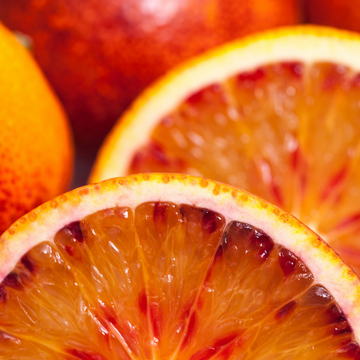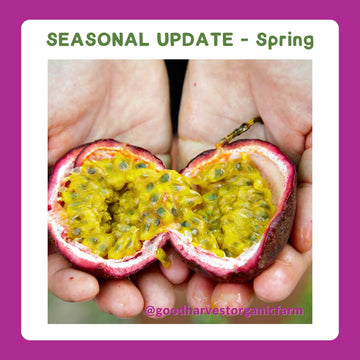Blood oranges are a short season citrus currently now in season. Now is the perfect time to buy them at their cheapest, sweetest and most nutritious…..so how do you use them and why are they so great? We are glad you asked!
Blood orange are not the most known of the citrus world however they are super versatile and unbelievably tasty.
Here’s why we love them, what to look for, how to store them and a few ideas on how to use them.
Blood oranges are rich in antioxidants, you know those life giving things that help to reduce the stress of oxidation and lower your risk of chronic health issues such as heart disease and diabetes? Or and help fight the signs of aging? (Yeah they are kind of a big deal!)
Not only that they are a great source of Vitamin C, Vitamin A, Potassium, Maganese, Anthocyanins and dietary fibre. Pretty amazing package right?
So how do blood oranges compare with their Naval Orange cousins…..are you ready for it?
Blood oranges contain nine (9) times (yep NINE times) the antioxidants, double the Vitamin A and 3 times the amount of polyphenols (potent plant chemicals that are super important) including ones their cousins don’t contain. What’s more, they outclass their citrus cousins for their health promoting benefits with one blood orange equivalent to eating a whole bag (around 2 kilograms) of navels to get the same hit of antioxidants.
They are also naturally low in sugar, contributing to just 3% of your daily energy and are low energy density, this combined with their super dose of nutrients has been demonstrated to assist in reducing fat stores and preventing obesity!
It goes without saying that these citrus superstars also provide a good boost to the immune system (this is why eating seasonally is so important – nature gives us what we need, when we need it). One blood orange can provide 100% our recommended daily intake of Vitamin C, which is essential for iron and zinc absorption and vital to increasing resistance to infection.
So how do they get their rich, ruby red colour?
That gorgeous colour comes from anthocyanin, commonly found in blueberries, cherries and red wine. This special antioxidant pigment that also protects the fruit from becoming damaged by the environment.
What to look for?
When buying, choose blood oranges with firm skin, that feel heavy and smell fragrant – avoid shrivelled skin.
How to store:
When storing, blood oranges will last for a week in a bowl at room temperature, or three weeks in the fridge.
Hot tip: While they are in season, buy extra and freeze the juice in airtight containers so you can still enjoy them out of season. Did somebody say summer cocktails? You can get more juice from your blood oranges by soaking them in hot water for 10-15 minutes before juicing.
How can I use them?
- Eat them fresh – slice them into wedges and eat them as you would an orange
- In dressings – make a vinaigrette – simply make your basic vinaigrette and add a splash of blood orange juice and some grated peel.
- In drinks - Juice them, mix them in to cocktails/mocktails
- In salads – they pair incredibly well with avocado, fennel and rocket.
- In marinades – perfect pairing with chicken, duck or fish - especially salmon.
- In baked goods or no bake treats – think panna cotta, blood orange and poppy seed muffins, biscuits and cakes – simply substitute anything with oranges or even lemon with blood oranges instead.
- Dry them - if you have let a few of them go past their best by date - dehydrate them and use them to spruce up your cocktails.
Check out the recipe below with a link to more ideas.
NO BAKE BLOOD ORANGE TART - Gluten Free

INGREDIENTS:
tart base
- 3.5 cups pecans
- 6-7 Medjool dates, pitted
- 2 tsp maple syrup
- Pinch of salt
cashew cream filling
- 1 cup raw cashews, soaked overnight, drained
- 1/3 water
- 2 tb maple syrup
- 1 tsp vanilla extract
- 1/2 cup desiccated coconut
topping
- 7 blood oranges, peeled, pith and seeds removed, and evenly sliced into small segments
- 1 tsp lemon zest
METHOD
- Place all tart base ingredients into a high-speed blender and process until it forms a crumb like texture.
- Place mixture into a 23 cm flan (tart) pan with removable base and evenly press into the base making sure you press against the sides of the pan to create a crust like shape for the tart base. Damp fingers work best. Set tart shell aside.
- To make the filling, blend all ingredients in a high-speed blender until smooth and thick mixture, about 5 minutes, scraping sides as needed. Pour into prepared shell, spreading evenly. Place in the fridge to set for a minimum of 30 minutes.
- Just before serving, arrange orange slices on top of tart and sprinkle with lemon zest and crushed nuts and serve immediately.
Check out more recipes from: A taste of home - blood orange recipes.




